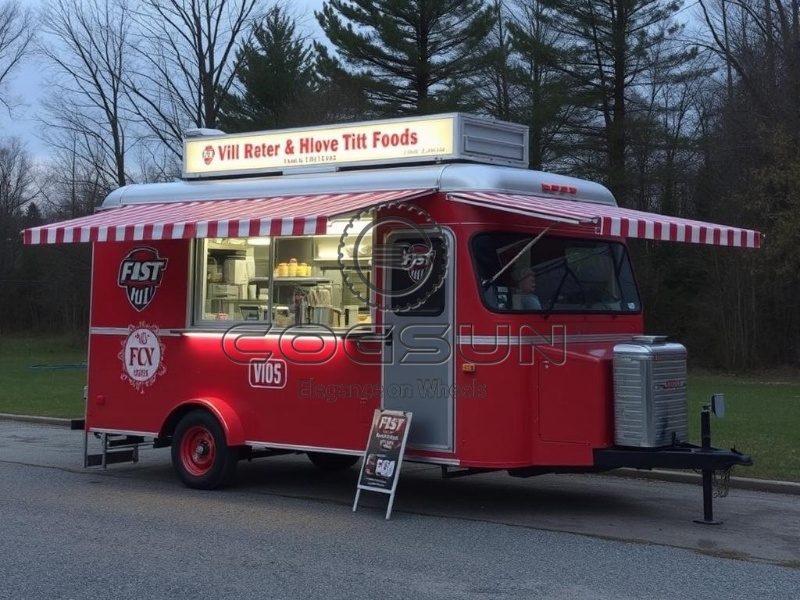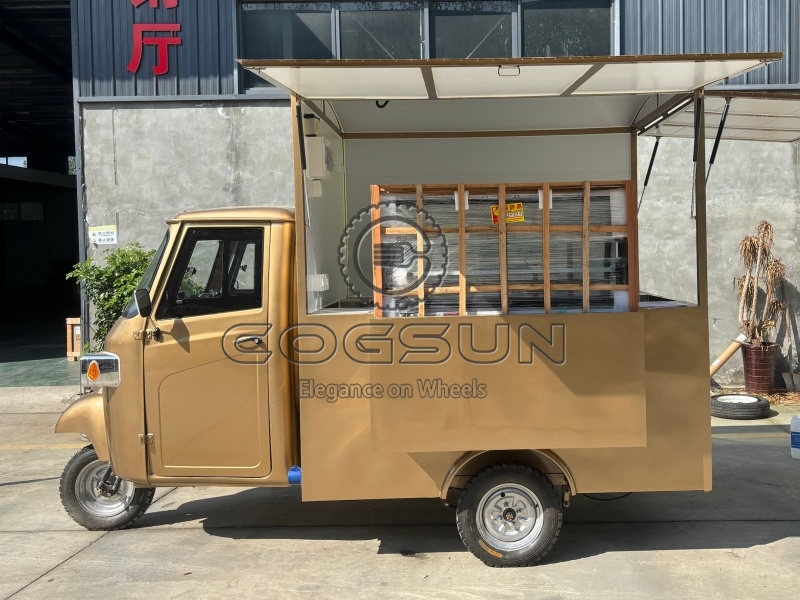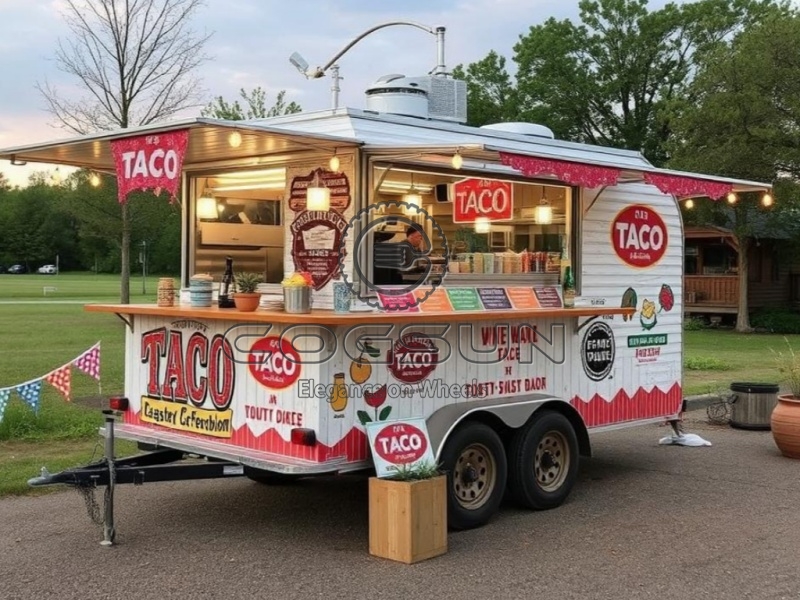In today’s fast-paced world, consumers are increasingly demanding convenient, efficient, and creative dining options. Fast Food Trailers, with their flexibility, low costs, and high returns, are becoming a rising trend in the F&B industry. Whether serving popular street food or creative food trucks for branded events, these mobile kitchens are transforming traditional F&B operations with their unique appeal.

Key Features
1.Freedom of Movement, Hassle-Free Location Selection
- The biggest advantage of Fast Food Trailers is their mobility. Without the need for high storefront rentals, entrepreneurs can adjust their locations based on traffic, seasonality, or event demand. From commercial streets and night markets to music festivals and sporting events, they can easily cover diverse consumer scenarios.
2.Low Investment, High Returns
- Compared to traditional restaurants, the initial cost of a fast food trailer is typically over 50% lower, and operating costs are more manageable. The rapid payback period makes it easy for even small and micro-entrepreneurs to enter the market.
3.Brand Customization, Eye-Catching Design
- The trailer’s exterior is fully customizable, with branding elements incorporated into everything from the paint job and lighting to the menu display, turning it into a mobile “billboard.” Creative designs can also attract passersby to stop and take photos, generating social media buzz.
4.Strong Compliance and Safety Guarantee
- Trailers manufactured by reputable manufacturers meet food hygiene and fire safety standards and are equipped with independent water and electricity systems, sewage disposal, and temperature control to ensure legal and compliant operations.
Interior Equipment
1.Cooking Area
- Multi-function stovetops: Gas or electric grills, frying pans, and deep fryers support various cooking methods, including frying, stir-frying, deep-frying, and grilling.
- Ventilation System: Powerful range hoods and exhaust hoods ensure timely exhaust of cooking fumes, maintaining fresh air inside the vehicle.
- Insulation Equipment: Commercial microwave ovens and hot water baths maintain food temperature and texture.
2.Storage and Refrigeration Area
- Refrigerator/Freezer: Stores fresh ingredients and semi-finished products, with adjustable temperatures between -18°C and 4°C.
- Dry Goods Lockers: Tiered storage for tableware, seasonings, and packaging materials.
- Water Purification System: Independent water tanks and filters provide clean water, supporting extended offline operation.
3.Washing and Sanitation Area
- Three-sink sink: Washing, rinsing, and disinfecting procedures that meet hygienic standards.
- Waste Sorting: Sealed trash cans and recyclable bins reduce odor and contamination.
4.Service and Cashier Area
- Order Window: Bulletproof glass and retractable trays facilitate customer interaction.
- POS systems and payment terminals: Support cash, credit cards, and mobile payments, improving transaction efficiency.
- Small display cases: Display models or finished products of signature dishes to stimulate consumer demand.
Application Areas
1.Street Food Economy
- Classic fast food items like hamburgers, hot dogs, tacos, and pancakes are rapidly penetrating urban corners through trailers, becoming popular check-in spots for young people. For example, Kogi Korean BBQ in Los Angeles, USA, earns millions annually with its Korean-Mexican fusion cuisine.
2.Brand Events and Festival Marketing
- Companies can use customized trailers to offer branded food at trade shows, press conferences, or roadshows, enhancing the user experience and creating memorable moments. Starbucks once launched a mobile coffee trailer, offering limited-edition drinks at music festivals, successfully attracting young customers.
3.Tourism Attractions and Leisure and Entertainment
- In theme parks, beach resorts, and other settings, trailers can provide instant consumption options such as ice cream, cold drinks, and light meals, preventing visitors from leaving early due to hunger.
4.Disaster Response and Community Services
- During natural disasters or public events, trailers equipped with generators can be quickly converted into mobile kitchens, providing hot meals to affected communities and demonstrating social value.




